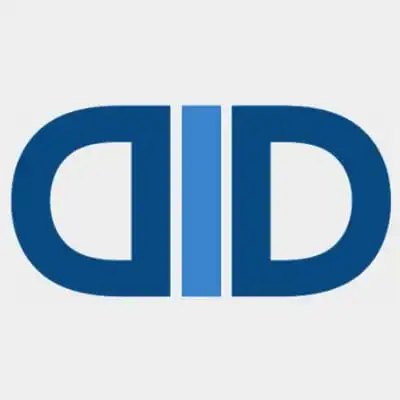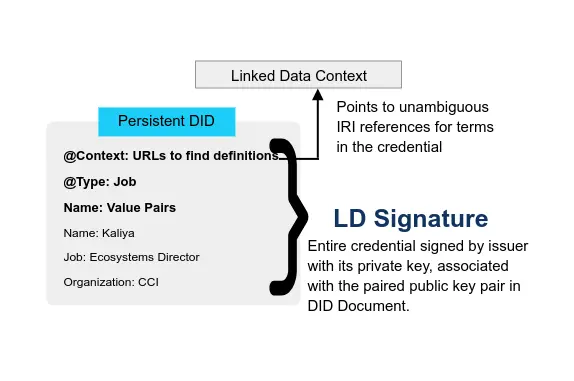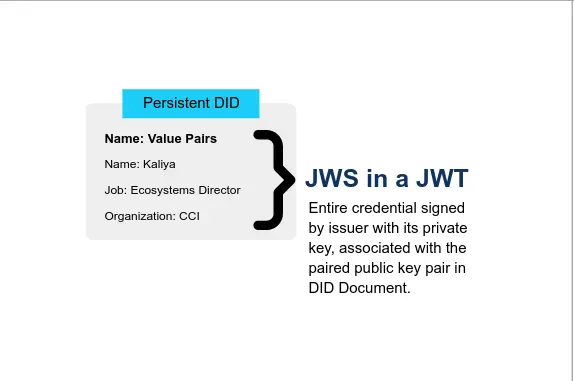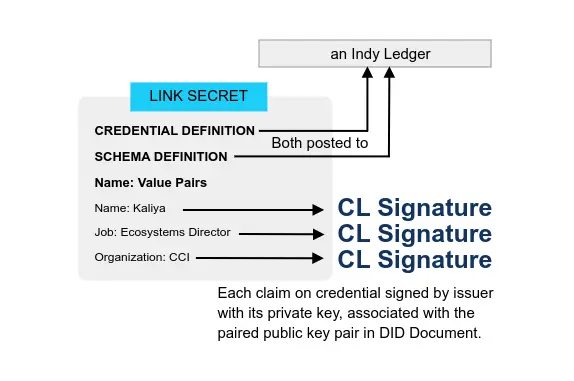JSON-LD - W3C
Main
- JSON-LD (json-ld.org) From: json-ld.org Type: Site
- JSON-LD Playground (json-ld.org) From: json-ld.org Type: Tool
- JSON-LD for Beginners From: Moz By: Alexis Sanders Type: Post Date: 2017-02-09
- Why JSON-LD From: json-ld.org Type: Post Date: 2015-09-26
- On JSON-LD and the semantics of Identity From: Transmute By: Orie Steele Type: Post Date: 2020-01-06
- Publishing JSON-LD for Developers From: DataLanguage Type: Post Date: 2018-04-27
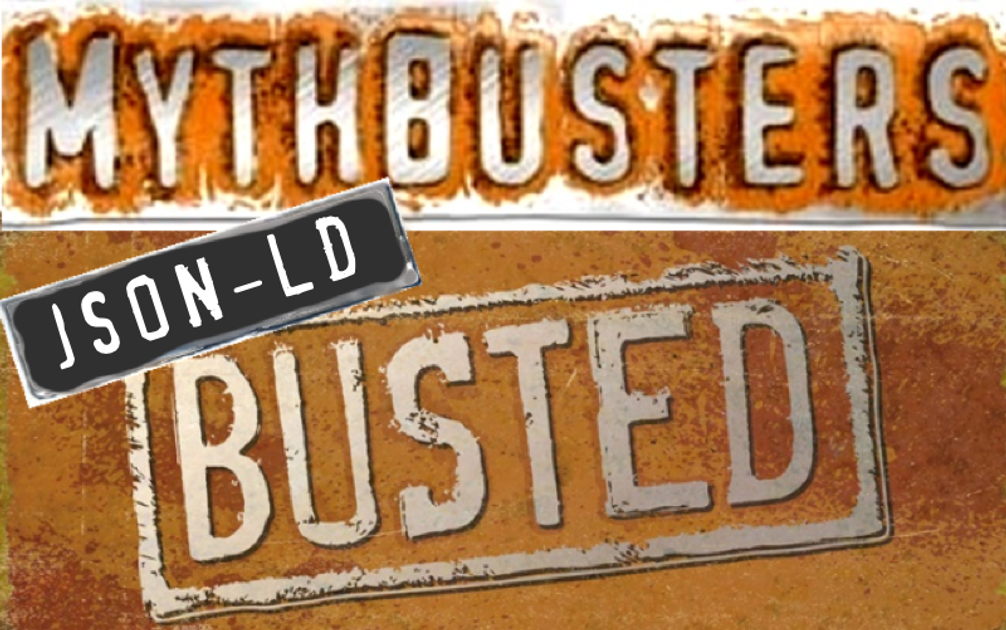
- What Is JSON-LD Markup and Why Is It Better than Schema.org? From: sitechecker Type: Post
- ActivityPub Part 2 From: Libre Lounge Type: Episode Date: 2019-04-19
- Mental Models of JSON-LD and what a "Document Loader" really does From: DIF By: Orie Steel Type: Video Date: 2020-11-09
- JSON-LD and Why I Hate the Semantic Web From: Manu Sporny By: Manu Sporny Type: Post Date: 2014-01-21
Data is messy and disconnected. JSON-LD organizes and connects it, creating a better Web.
The JSON-LD Playground is a web-based JSON-LD viewer and debugger. If you are interested in learning JSON-LD, this tool will be of great help to you. Developers may also use the tool to debug, visualize, and share their JSON-LD markup.
JSON-LD stands for JavaScript Object Notation for Linked Data, which consists of multi-dimensional arrays (think: list of attribute-value pairs).
It is an implementation format for structuring data analogous to Microdata and RDFa. Typically, in terms of SEO, JSON-LD is implemented leveraging the Schema.org vocabulary
JSON-LD is able to accomplish the same thing, but does not require HTML. It can exist in and of itself. In short, JSON-LD can be inserted into your web page without disrupting the current content or HTML.
In this post, we’ll explore how JSON-LD is used in a number of contexts including decentralized identity and verifiable credentials. We’ll also cover the basics of what you should know before using JSON-LD and how you can contribute to software and standards that rely on it.
A case for publishing JSON-LD regardless whether you are working with linked data or RDF, with some simple examples
JSON-LD has been among us for several years now, its adoption is increasing, but I suspect not as fast as it probably should. JSON-LD arose out of the RDF community, subsequently adopted as a W3C standard, as a pattern for representing RDF and linked data (hence ‘LD’) as JSON, with a key aim of making RDF much easier to consume for developers.
If you understand how to use schema.org, but do not dare to mark pages up because of the complexity of the process, this article is for you. There is an effective and easy-to-use alternative - the JSON-LD format.
In our ongoing series about ActivityPub, Chris and Serge explore the world of JSON-LD and the ActivityStreams vocabulary.
and terms like “dereferencing” that trip up even highly experienced senior developers that show up late to the Linked-Data party and its open-world model (complete with its own security model based on different availability assumptions).
JSON-LD is a product of consensus. Nobody agrees on everything in there, but it all sticks together pretty well. There being a consensus on consensus is what makes the W3C, IETF, and thus the Web and the Internet work. Through all of the fits and starts, permathreads, pedantry, idealism, and deadlock, the way it brings people together to build this thing we call the Web is beautiful thing.
Explainer
- What is Linked Data? By: Manu Sporny Type: Video Date: 2012-06-17

- What is JSON-LD? By: Manu Sporny Type: Video Date: 2012-06-19

- JSON-LD: Core Markup By: Manu Sporny Type: Video Date: 2015-02-18

- JSON-LD: Compaction and Expansion By: Manu Sporny Type: Video Date: 2015-02-18

- Linked Data Signatures By: Manu Sporny Type: Video Date: 2015-02-17

- Credentials on the Web By: Manu Sporny Type: Video Date: 2015-02-17
- Creating 3rd Generation Web APIs with JSON-LD and Hydra By: Markus Lanthaler Type: Paper Date: 2013-04-01 Event: World Wide Web Conference
- Model Your Application Domain, Not Your JSON Structures By: Markus Lanthaler, Christian Gütl Type: Paper Date: 2013-04-03 Event: World Wide Web Conference
- Hydra: A Vocabulary for Hypermedia-Driven Web APIs By: Markus Lanthaler, Christian Gütl Type: Paper Date: 2013-04-11 Location: Rio de Janeiro Event: World Wide Web Conference
- On Using JSON-LD to Create Evolvable RESTful Services By: Markus Lanthaler, Christian Gütl Type: Paper Date: 2012-04-26 Event: World Wide Web Conference
Short video introduction to Linked Data
Short video introduction to JSON-LD
An overview of some of the core markup features of JSON-LD including types, aliasing, nesting, and internationalization support
An overview of JSON-LD’s compaction and expansion features and how you can use them to merge data from multiple sources
An overview of how digital signatures can be added to Linked Data to provide verifiable statements on the Web
A quick introduction to verifiable credentials on the Web
Proceedings of the Proceedings of the 22nd International World Wide Web Conference (WWW2013), pp. 35-37. Rio de Janeiro, Brazil: ACM Press
Proceedings of the 4th International Workshop on RESTful Design (WS-REST 2013) at WWW2013, pp. 1415-1420. Rio de Janeiro, Brazil: ACM Press
Proceedings of the 6th Workshop on Linked Data on the Web (LDOW2013) at WWW2012
Proceedings of the 3rd International Workshop on RESTful Design (WS-REST 2012) at WWW2012, pp. 25-32. Lyon, France: ACM Press
Presentation
- JSON-LD: JSON for the Social Web By: Gregg Kellogg Type: Presentation Date: 2013-08-01 Location: San Francisco, CA, USA Event: Social Standards Workshop 2013
- Building Next-Generation Web APIs with JSON-LD and Hydra By: Markus Lanthaler Type: Presentation Date: 2013-05-29 Location: OR, USA Event: Symfony Live Portland 2013
- Model Your Application Domain, Not Your JSON Structures By: Markus Lanthaler Type: Presentation Date: 2013-05-14 Location: Rio de Janeiro, Brazil Event: World Wide Web Conference
- Hydra: A Vocabulary for Hypermedia-Driven Web APIs By: Markus Lanthaler Type: Presentation Date: 2013-05-14 Location: Rio de Janeiro, Brazil Event: World Wide Web Conference
- JSON-LD: JSON for Linked Data By: Gregg Kellogg Type: Presentation Date: 2012-05-30 Location: San Francisco, CA, USA Event: Semantic Technology & Business Conference
- JSON-LD for RESTful Services By: Markus Lanthaler Type: Presentation Date: 2012-04-17 Location: Lyon, France
- JSON-LD and MongoDB By: Gregg Kellogg Type: Presentation Date: 2012-08-19 Location: CA, USA Event: NoSQL Now!
JSON-LD JSON for the Social Web Gregg Kellogg gregg@greggkellogg.net @gkellogg Wednesday, August 7, 13 Introducing JSON-LD JSON-based syntax to express linked…
Building Next-Gen Web APIs with JSON-LD and Hydra Markus Lanthaler Why do we need a website? Of course we have a website Why do we need an API? 1995 2000 2005…
Model Your Application Domain, NotYour JSON Structures Markus Lanthaler Graz University ofTechnology RPC REST APIs must be hypertext-driven Got a head…
Hydra AVocabulary for HypermediaAPIs Markus Lanthaler Graz University ofTechnology Why can’t Web APIs be browsed? - Layered system REST + Linked Data: a mat…
JSON-LD JSON for Linked Data Gregg Kellogg gregg@greggkellogg.net @gkellogg JSON-LD JSON for Linked Data nk ing Li Gregg …
JSON-LD for RESTful Services Markus Lanthaler Graz University of Technology Web APIs are becoming a must-have - Layered system Semaphobia!? Linked Data G…
JSON-LD and MongoDB Powering Linked Web Apps Gregg Kellogg gregg@greggkellogg.net @gkellogg JSON-LD and Mongo • JSON-LD – graph expressio…
Working Group
- JSON-LD Working Group From: JSON-LD WG Related: W3C Type: Working group Established: 2018-07-15
- JSON-LD 1.1 Framing Specification From: JSON-LD WG Related: W3C Type: Specification Date: 2023-04-12
- JSON-LD 1.1 Processing Algorithms and API Specification From: JSON-LD WG Related: W3C Type: Specification Date: 2023-04-12
- JSON-LD 1.1 Syntax From: JSON-LD WG Related: W3C Type: Specification Date: 2023-04-12
- JSON-LD Best Practices From: JSON-LD WG Related: W3C Type: Note Date: 2023-04-12
- JSON-LD Recommended Context From: JSON-LD WG Related: W3C Type: Note Date: 2020-05-07
- JSON-LD 1.1 Framing Specification From: JSON-LD WG Type: Specification Date: 2023-04-12
- JSON-LD 1.1 Processing Algorithms and API Specification From: JSON-LD WG Type: Specification Date: 2023-04-12
- JSON-LD 1.1 Specification From: JSON-LD WG Type: Specification Date: 2023-04-12
- JSON-LD 1.1 Best Practices Note From: JSON-LD WG Type: Note Date: 2023-04-12
- JSON-LD Recommended Context From: JSON-LD WG Type: Code Date: 2023-04-12
- Teleconference minutes - text and audio logs From: JSON-LD WG Type: Page Date: 2023-05-17
- Charter for JSON-LD WG From: JSON-LD WG Type: Page Date: 2018-06-07
The Working Group maintains the JSON-LD specifications (i.e., JSON-LD 1.1, JSON-LD 1.1 API, JSON-LD 1.1 Framing) that together provide a JSON format for Linked Open Data to interoperate at web-scale, in a method which is familiar to and usable by web-focused software engineers.
JSON-LD Framing allows developers to query by example and force a specific tree layout to a JSON-LD document.
This specification describes a superset of the features defined in JSON-LD Framing 1.0 [JSON-LD10-FRAMING] and, except where noted, the algorithms described in this specification are fully compatible with documents created using the previous community standard.
This specification defines a set of algorithms for programmatic transformations of JSON-LD documents. Restructuring data according to the defined transformations often dramatically simplifies its usage. Furthermore, this document proposes an Application Programming Interface (API) for developers implementing the specified algorithms.
JSON is a useful data serialization and messaging format. This specification defines JSON-LD 1.1, a JSON-based format to serialize Linked Data. The syntax is designed to easily integrate into deployed systems that already use JSON, and provides a smooth upgrade path from JSON to JSON-LD. It is primarily intended to be a way to use Linked Data in Web-based programming environments, to build interoperable Web services, and to store Linked Data in JSON-based storage engines.
Developers share a common problem: they want a simple, but extensible way to create an API for a web service that gets the job done, doesn’t design them into a corner, and allows developers to easily interact with their service without reinventing the wheel. JSON-LD [JSON-LD] has become an important solution, as it bridges the gap between formally data and more colloquial JSON interfaces used in APIs from numerous providers. This guide attempts to define certain best practices for publishing data using JSON-LD, and interacting with such services.
This is the repository for a recommended context for JSON-LD 1.1, as well as the RDFa Core Initial Context, developed and maintained by the W3C JSON-LD Working Group. Most of the major resources in this repository are redirected from W3C URI-s that have been in use by the community for a while. These are as follows:
This specification describes a superset of the features defined in [JSON-LD10-FRAMING] and, except where noted, the algorithms described in this specification are fully compatible with documents created using the previous community standard.
This specification defines a set of algorithms for programmatic transformations of JSON-LD documents. Restructuring data according to the defined transformations often dramatically simplifies its usage. Furthermore, this document proposes an Application Programming Interface (API) for developers implementing the specified algorithms.
This specification describes a superset of the features defined in JSON-LD 1.0 [JSON-LD10] and, except where noted, documents created using the 1.0 version of this specification remain compatible with JSON-LD 1.1
Developers share a common problem: they want a simple, but extensible way to create an API for a web service that gets the job done, doesn’t design them into a corner, and allows developers to easily interact with their service without reinventing the wheel. JSON-LD [JSON-LD] has become an important solution, as it bridges the gap between formally data and more colloquial JSON interfaces used in APIs from numerous providers. This guide attempts to define certain best practices for publishing data using JSON-LD, and interacting with such services.
JSON-LD Teleconference Minutes
Since its original publication in 2014 by the RDF 1.1 Working Group, JSON-LD 1.0 has become an essential format for describing structured data on the World Wide Web. It is estimated to be used by between 10% and 18.2% of all websites. This is due largely to its adoption as a recommended format by schema.org. It has been adopted by several Recommendations including those from the Social Web, Web Annotation, and Linked Data Platform Working Groups, and current Working Groups have expressed interest in alignment of their specifications, such as the Publishing and Web of Things Working Groups. It has provided a much-needed bridge between communities that need rich semantics, and those that desire an intuitive and easily usable format (see separate wiki page for more details).

